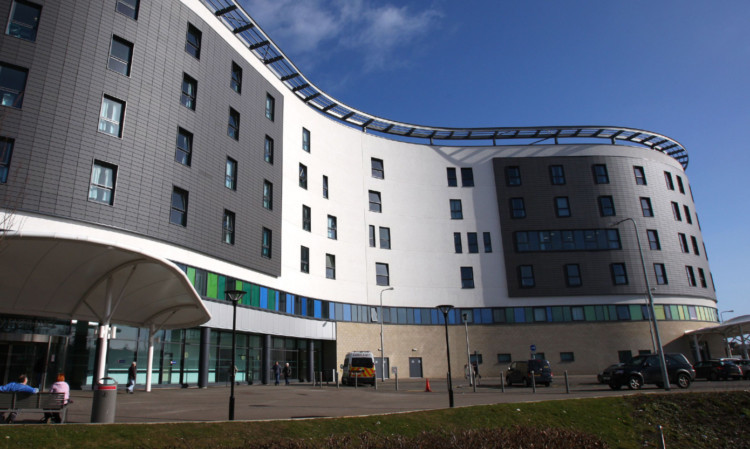On the anniversary of her beloved father’s funeral, a Fife woman has told in startling terms of the “accident waiting to happen” in Victoria Hospital, Kirkcaldy.
The grieving daughter, who wished only to be known as Mrs A, told NHS Fife Board of how her dad died following a fall while going to the toilet.
Mrs A said her father, who was in his 80s, was suffering from the early stages of Alzheimer’s.
He had had a hip replaced and was ready to be discharged from the trauma ward, but was anxious and was, according to his daughter, “a bit unpredictable”.
The day before his fall, the woman she had spoken to staff and was assured tags Wanderguards that alert staff when patients move were available.
The next day he had a very serious fall.
It turned out that, by using his walking frame, he had attempted to go to the toilet in the four-bed bay but the doors only opened outwards.
The door had knocked him backwards and he suffered a fractured skull.
At the time, Mrs A said she felt the ward was not adequately staffed. Nurses were extremely busy.
“It was a great shock,” Mrs A told the board. “I had heard about the Vic and read things in the papers but thought: ‘It is not that bad’.
“I could not believe it. This was an accident waiting to happen.”
The episode left her determined to work to improve things.
“Things have had to change,” she said. “I did not want to sue anyone or go to the press but I wanted to work with other people to make things better, because his was an accident waiting to happen.”
She praised the patient relations system and had revisited the hospital recently to see the changes that had been made.
“It was the difference between night and day. It seems that there is less stress, things are much calmer. All the suggestions made are in place and a lot of work has been done.
“Everyone is trying their best to move on to better things. Nothing is being shoved under the carpet.”
Directorate nurse manager Maureen Speedie said the incident had been “catastrophic for the patient and family” but it was also devastating for staff who felt they had failed the family and not kept him safe.
She explained 80% of patients in trauma wards were elderly. Many patients have delirium, dementia or Alzheimer’s.
Ms Speedie said that, before the fall, nurses felt Mr A was comfortable and thought he was asleep.
“They had checked him five minutes before,” she continued. “We felt we had taken enough measures to keep him safe.
“He got up and fell. It was the door which foiled him and he fell back.”
While it was busy, the number of nursing staff on duty was what the hospital would expect.
However, his fall came during break time. Since then changes had been made, including altering the break system.
Funding was approved both to change doors in the trauma ward bays to ensure they now opened inwards and to buy more Wanderguards.
